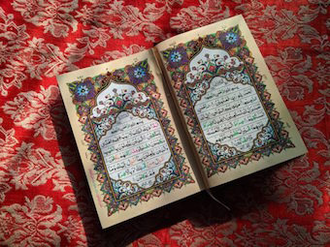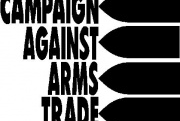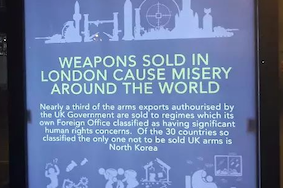Twenty years after 9/11 Saudi Arabia still exports hatred

President Biden recently declassified intelligence reports that found hno direct link between the Saudi Arabian government and the 9/11 plotters. Yet, until recently the Kingdom donated millions of books around the globe that incited racism, extolled the exceptionalism of the Wahhabi faith, reinforced jihadist messages, and fuelled hatred of other faiths.
After 9/11, Saudi authorities repeatedly promised and failed to amend the books it gave to mosques and madrassas worldwide. Although Human Rights Watch (HRW) reports that the Kingdom has finally revised its school textbooks, removing the most overt anti-Semitism and incitement to kill Christians, millions of the previous toxic editions remain in use around the globe, from Pakistan to Indonesia to Bradford and Minneapolis.
Analysts suggest the recent revisions are to make the Kingdom palatable for inward investment, following the US intelligence reports on Crown Prince Mohammed bin Salman's complicity in the murder of journalist Jamal Khashoggi.
Saudi responds to the Iranian Revolution
Following the 1979 Iranian revolution, Saudi authorities spent an estimated $100 billion spreading the conservative Wahhabi version of Islam across the globe, including to British institutions. Dore Gold claims that between 1982 and 2005, the Saudis spent an estimated £75 billion globally on 200 Islamic colleges, 210 Islamic centres, 1,500 mosques and 2,000 schools, all teaching an intolerant, fundamentalist creed.
Parents in poor countries jumped at the chance to send their sons to free schools. According to Mohamed Charfi, the former minister of education in Tunisia, Saudi-backed madrassas in Pakistan and Afghanistan have played significant roles in strengthening radical Islam there. Saudi institutions have trained thousands of teachers and preachers in their intolerant interpretation of Islam.
King Salman offered to build 200 Wahhabi mosques for Syrian refugees arriving in Germany, but not a penny to help with their re-settlement or more basic needs. Yasmin Alibhai-Brown described it as the "Trojan horse of the secret Saudi crusade."
In Nigeria, at least 20,000 Christians and mainstream Muslims have been killed by Boko Haram and Islamic State proxies. A Nigerian journalist (anonymous, for his own safety) says Saudi has sponsored hundreds of fundamentalist imams, including Boko Haram's ex-leader Mohammed Yusuf, paying for their study in the Gulf, and bankrolling Nigeria's intolerant Salafist Islamist movement. He points to Nigeria's political and economic links with Saudi, warning it has deadly consequences for those rejecting Boko Haram's ideology.
What was the problem with Saudi textbooks?
The Kingdom's pre-sanitized books teach that non- Wahhabis are polytheists heading for hell regardless of their good deeds. Shi'a and Sufi veneration of prophets is "heresy," while criticism of Islam is "apostasy," deserving the death penalty. Students must avoid friendship with members of other religions. They also encouraged both violent and non-violent jihad against non-believers.
Among several now-expunged passages is a reference to Jews as monkeys and Christians as pigs. HRW reports that the website of the Saudi committee issuing fatwas continues to proclaim that "hating infidels is obligatory because they are the enemies of God and His messenger and the enemies of Muslims."
Of the new editions, the US Commission on International Religious Freedom former Commissioner Johnnie Moore says: "We are heartened that advocates for international religious freedom - including within the government itself - are making progress in Saudi Arabia….. Some might say astonishing progress."
Nina Shea of the Hudson Institute argues that reforming textbooks is only part of the problem. "Innumerable Sunni Muslim villages and city neighbourhoods in Africa and Asia have been indoctrinated in lessons that direct students to fight and kill the religious other, thanks to Saudi-government-published religious texts and export policies. Two years ago, one of the leaders of Al Azar, the great centre of Sunni learning in Cairo, told me that his institution still taught some courses from Wahabi textbooks. Saudi schools in major Western capitals long taught from these texts. Saudi Arabia must replace them everywhere and see that the old editions are destroyed. It must replace them on the Internet. Riyadh must stop inciting, through its prior textbook editions, extremism and terror abroad, as well as at home."
Does Global Britain care?
There are 30 state-funded Muslim schools in England and Wales, and 180 private ones. The BBC estimated that the unrevised textbooks were used by about 5,000 students in the UK. How many religious leaders in British mosques have studied in Saudi, even though the vast majority of British Muslims are not Wahhabi? Will the British government ensure the old textbooks are replaced? What about online material? My attempt to get answers from the Saudi embassy and via written Parliamentary questions proved fruitless.
The Department of Trade website states that Saudi is the UK's third largest trade partner outside the EU. (Less discussed is London's "money butler" role managing the Saudi royals' money and Gulf sovereign wealth funds). Yet, the Foreign Affairs Select Committee suggests that trade policy should be coordinated with other UK priorities to avoid the incoherence of British international policy. Given the UK's role supplying Saudi's war in Yemen, and managing Gulf money, what chance is there our officials will remove poisonous textbooks from British institutions any time soon?
Rebecca Tinsley's novel about Sudan, When the Stars Fall to Earth, is available in English and Arabic. See: www.amazon.co.uk/When-Stars-Fall-Earth-Africa/dp/0984512950


















